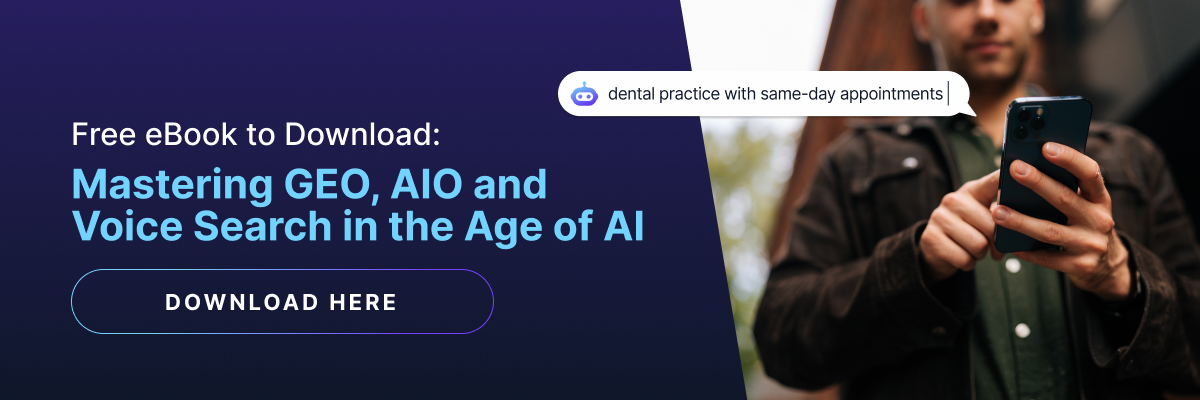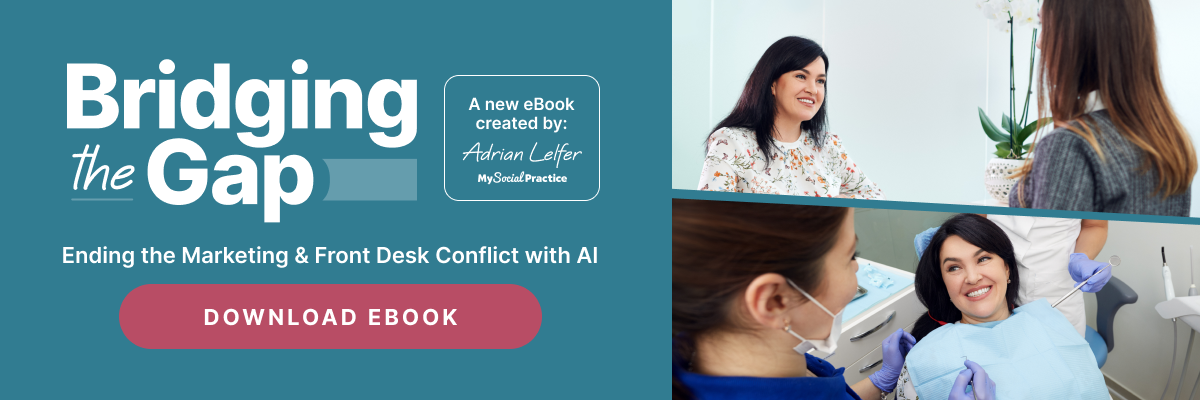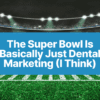
What You’ll Learn:
- How AI search is reshaping patient behavior and why decisions now form inside conversational AI experiences before a website click ever happens.
- What Bing’s latest data reveals about AI-driven conversions, including why AI referrals convert at dramatically higher rates than traditional organic search.
- Why Google’s Gary Illyes says SEO must “coevolve” and what that means for modern dental marketing strategies.
- Which new visibility signals matter most in an AI-first search environment, from citations to inclusion in AI-generated summaries.
- How dental practices can optimize for AI Search (AISO) using structured content, FAQs, schema, and trust-building elements.
Table of Contents
AI Search, Bing’s New Data, and Why Google Says SEO Must “Coevolve”
Search is shifting faster than at any point in the last decade, and this week, both Microsoft Bing and Google essentially said the same thing: AI-driven search is rewriting how users discover, evaluate, and convert. Bing released new data showing how AI search is reshaping the customer journey, while Google’s Gary Illyes publicly weighed in, confirming that SEO isn’t dying, but it is evolving.
Together, their messages point to a new reality for online dental marketing. Clicks matter less, intent matters more, and visibility inside AI-generated answers is becoming one of the most valuable forms of digital real estate.
What the Bing Report Reveals About AI Search Behavior
Bing’s new data makes it clear that AI search isn’t just changing where users click, but how they make decisions. More of the journey now happens inside conversational AI experiences, where users refine intent through follow-up questions before ever visiting a website.
And the numbers are hard to ignore:
- Amsive: 56% of sites saw higher conversions from AI-driven sessions, with high-traffic sites converting at 7.05% vs. 5.81% from organic.
- Similarweb: AI referrals convert at 11.4% compared to 5.3% for organic traffic.
- Microsoft Advertising: Copilot-powered journeys are 33% shorter and 76% more likely to trigger lower-funnel actions.
- BrightEdge: AI search still represents <1% of total traffic, but each visit carries significantly higher intent.
- Microsoft Clarity: AI referrals grew 155% in eight months and convert at up to 3× the rate of traditional search and social.
AI referrals may be smaller in volume today, but they’re dramatically more qualified. Users arrive with clearer intent, make decisions faster, and convert at far higher rates than classic organic search.
Conversion Rates: AI Search vs. Organic Search
| Source | Organic | AI Search |
| Amsive | 5.81% | 7.05% |
| Similarweb | 5.3% | 11.4% |
| Microsoft Advertising | – | 76% higher |
| Microsoft Clarity | – | Up to 3x |
Google Responds: “SEO Is Not Dead — But It Must Coevolve”
Google’s Gary Illyes weighed in on the Bing report, and his reaction confirms changes felt by digital marketing professionals. In his LinkedIn post, Illyes acknowledged that today’s AI-driven search experience is “hard to accept,” especially for those who grew up with blue links and long lists of results.
But he emphasized three key points:
- “SEM and SEO will need to coevolve with search.” As user behavior changes, optimization strategies must evolve alongside it, just as they have for the past 30 years.
- “SEO is not dead.” Despite constant predictions otherwise, SEO continues to adapt rather than disappear.
- Change is uncomfortable but essential. The brands that lean into these new search behaviors will be the first to benefit.
It’s a rare moment of alignment. Both Bing’s data and Google’s own analysts agree that the future of search will be more conversational, more intent-driven, and far more dependent on understanding how AI systems surface and trust content.
What This Means for SEO and Dental Marketing
If SEO is evolving, then dental SEO needs to evolve even faster to keep up with local competition. Fortunately, many of the strategies that help you rank in traditional search also set you up for success in AI-driven experiences. All you need is to add a new layer of structure and clarity.
Here’s how dental practices can get ahead:
- Create ultra-clear, structured service pages. Break out treatments (veneers, dental implants, Invisalign, emergency care) with FAQs, benefits, candidacy, and cost/insurance details. AI systems rely on structured clarity to surface your practice.
- Use schema markup wherever it makes sense. LocalBusiness, Dentist, FAQ, and Review schema help AI models understand your services, location, and authority.
- Build content that answers actual patient questions. “Is Invisalign faster than braces?” “How much does a crown cost?” “Do dentists take Delta Dental?” These are exactly the queries AI systems handle conversationally.
- Track new signals, not just clicks. As AI referrals grow, visibility metrics (citations, impressions in summaries, featured answers) become key indicators of your influence.
- Double down on trust. Showcase credentials, patient reviews, before-and-after photos, team bios, and transparent explanations. AI tools prioritize reputable, clearly authored information.
The goal is to make your practice easy for patients and AI systems to understand. The clearer your content, the more likely you are to be recommended during those early, high-intent decision moments.
The Future Isn’t “SEO vs. AI” — It’s SEO + AI
AI search isn’t replacing traditional SEO any time soon. Think of the change as an expansion more than anything else. Patients are still clicking through to dental websites, but they’re doing it later in the journey, with far stronger intent and clearer expectations. The practices that win will be the ones that show up early in AI-driven summaries, answer boxes, comparisons, and local recommendations.
As Bing’s data shows, AI referrals are still a small slice of traffic today, but they convert significantly higher, even up to 3× better than traditional search and social. Add Google’s own message that “SEO is not dead,” and the clear takeaway is that practices prepared to optimize for AI visibility now will be the ones capturing tomorrow’s most qualified patients.
AI search is where trust is forming. SEO’s job is to make sure your dental practice is part of that conversation.
Frequently Asked Questions
Is traditional SEO still important now that AI search is growing?
Absolutely. Traditional SEO isn’t disappearing, it’s expanding. Google’s Gary Illyes confirmed that “SEO is not dead,” but it must coevolve with AI-driven search experiences. Your website still needs strong technical SEO, helpful content, and local optimization, but now it also needs to be structured clearly enough for AI systems to understand and surface in summaries, comparisons, and conversational answers.?
How does AI search help dental practices get more patients?
AI-driven search tends to bring in higher-intent traffic. Bing’s data shows AI referrals convert at significantly higher rates — up to 3× more than traditional search or social. That means patients who arrive through AI search are further along in their decision-making process, more confident in their choice, and more likely to book an appointment, call, or submit a form.
What can dental practices do right now to improve AI search visibility?
Start by strengthening your structured content: clear service pages, FAQs, insurance details, provider bios, and schema markup (like LocalBusiness, Dentist, and FAQ schema). These elements make it easier for AI systems to interpret your content and include your practice in conversational answers. Pair that with strong reputation signals — reviews, clear expertise, and transparent information — and you increase your chances of appearing during those early, high-value AI search moments.
About the Author: Megan Nielsen is an SEO strategist and the Grand Overlord of copywriting at My Social Practice. My Social Practice is a dental marketing company that offers a full suite of dental marketing services to thousands of dental practices throughout the United States and Canada.


![[Byte Sized Podcast Ep. 29] Building the Infrastructure for AI in Dentistry Feat. Dr. Kianor Shah - bing,data - My Social Practice - A dental marketing company helping practices find new patients My Social Practice - A dental marketing company helping practices find new patients - bing,data](https://mysocialpractice.com/wp-content/uploads/2026/02/byte-sized_ep29.png)




![[Byte Sized Podcast Ep. 29] Building the Infrastructure for AI in Dentistry Feat. Dr. Kianor Shah - bing,data - My Social Practice - A dental marketing company helping practices find new patients My Social Practice - A dental marketing company helping practices find new patients - bing,data](https://mysocialpractice.com/wp-content/uploads/2026/02/byte-sized_ep29-100x100.png)

